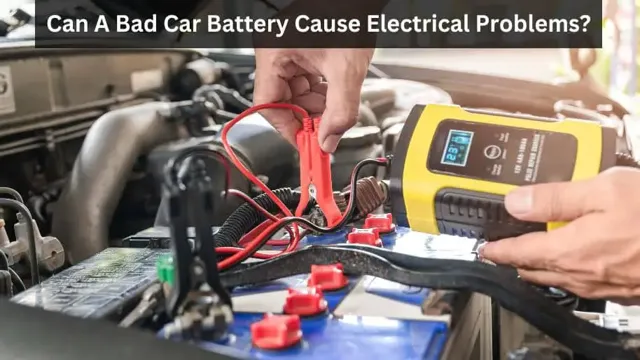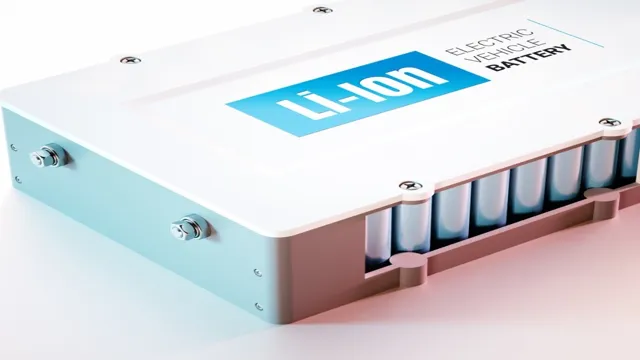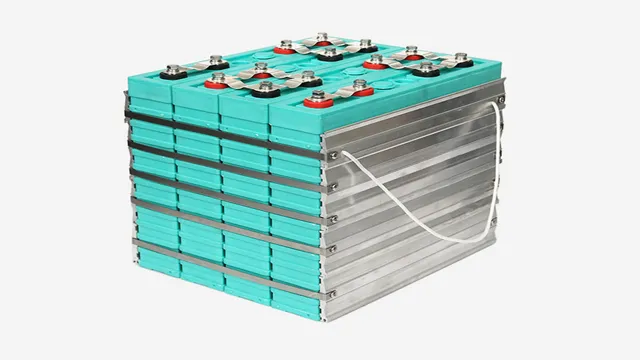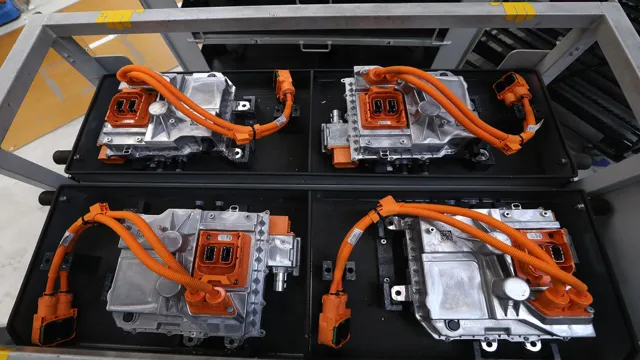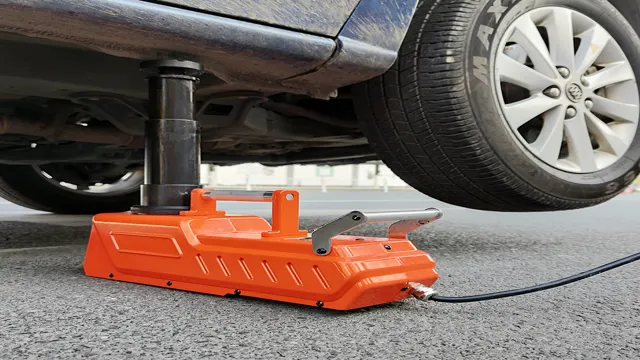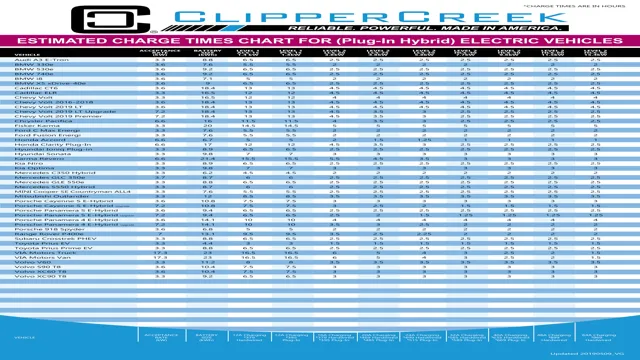Are You Experiencing Electrical Issues? It Could Be Your Old Car Battery!
We’ve all been there: You turn the key in the ignition and instead of hearing the rev of your engine, you’re simply met with a series of clicks. Your heart sinks as you realize that your car battery is dead. Older car batteries in particular are notorious for running out of juice when you least expect it.
But what causes electrical problems in old car batteries? And how can you prevent them from happening in the first place? In this blog, we’ll delve into the causes of old car battery electrical problems and offer some tips to help you avoid them. Whether you’re a seasoned motorist or a new driver, this information will be useful to keep your car running smoothly.
Symptoms of Electrical Problems caused by an Old Battery
Yes, an old car battery can absolutely cause electrical problems in your vehicle. One of the most common symptoms of an old battery is a slow engine crank. This occurs when the battery can no longer provide enough power to start the engine at a normal speed.
Another symptom is dimming headlights, indicating that the battery cannot maintain a consistent flow of power to the electrical components of the car. A weak battery can cause issues with the starter, alternator, and other electrical components of the car. If you notice these symptoms, it’s important to take your car to a trusted mechanic for a battery and electrical system check.
A failing battery can cause a host of other problems in your vehicle, so it’s important to address the issue as soon as possible to avoid further damage and costly repairs down the line.
Dim headlights, slow engine start, flickering dashboard lights
If you’ve noticed that your headlights aren’t as bright as they used to be, your engine is slow starting, or the dashboard lights are flickering, it might be a sign of an electrical problem caused by an old battery. Over time, batteries lose their capacity to hold a charge, and this can cause a variety of issues. If you’re experiencing these symptoms, it’s best to get your battery tested to see if it’s time for a replacement.
Think of the battery as the heart of your car; if it’s not functioning properly, everything else will suffer. Don’t wait until it’s too late and you’re stranded on the side of the road with a dead battery. By addressing the issue early on, you can save yourself time, money, and frustration in the long run.
Remember, prevention is always better than cure.
Reasons Why Old Batteries Cause Electrical Issues
Yes, an old car battery can cause electrical problems. Over time, car batteries can become corroded and lose their ability to hold a charge. This can lead to issues with electrical components in your car, such as dimming headlights, slow cranking when starting the engine, or even complete electrical failure.
Additionally, an old battery can cause problems for the alternator, which is responsible for keeping the battery charged. If the battery is not able to hold a charge, the alternator may work overtime to try to keep it charged, which can cause it to fail prematurely. To avoid these issues, it’s important to regularly check your battery and replace it when necessary.
If you notice any electrical issues with your car, it’s always a good idea to have it checked by a professional to ensure that the problem is not caused by a failing battery.
Corrosion and sulfation, reduced performance capacity
Old batteries are notorious for causing various electrical issues, and one of the main reasons is corrosion and sulfation. Over time, the battery’s components break down, and the electrolyte solution loses its potency, leading to a buildup of lead sulfate and other deposits on the battery plates. These deposits can corrode the battery terminals, which can cause electrical problems, such as voltage drop, sparks, and arcing.
Moreover, the battery’s reduced performance capacity can also lead to electrical issues, especially if the battery struggles to power the electrical components and systems in the vehicle. This can cause flickering lights, dimming dashboards, and even cause the car to stall. Hence, it’s always recommended to replace old batteries regularly, especially if they show signs of corrosion or sulfation, and to take proper care of the new ones to avoid similar issues in the future.
Impact of Old Car Batteries on Other Parts
An old car battery can certainly cause electrical problems in your vehicle. As the battery ages, its ability to hold a charge decreases, which means it may not provide the necessary power to start your car. This can result in slow cranking, clicking sounds, or even no power at all.
But that’s not the only issue. When a battery is running low, it can also put added strain on other parts of your car’s electrical system. For example, the alternator may be forced to work harder to keep the battery charged up, which can cause it to wear out more quickly.
Faulty batteries can also lead to other electrical problems, such as flickering dashboard lights or dim headlights. To avoid these problems, it’s important to replace your car battery before it completely dies out or begins to show signs of wear.
Affecting alternator, starter motor and fuses
When it comes to car maintenance, one component that often gets overlooked is the battery. While many drivers are aware that an old battery can cause their car to fail to start, they may not realize the impact it can have on other parts as well. An aging battery can affect the alternator, starter motor, and fuses in your car.
The alternator relies on the battery to recharge, so if the battery is weak or failing, it can put added strain on the alternator. The starter motor also relies on the battery to start the engine, so a weak battery can cause the motor to work harder than it should. Finally, fuses are designed to protect your car’s electrical system from power surges, but an old or failing battery can cause those surges and potentially damage the fuses.
So if you’re experiencing issues with any of these components, it’s worth checking your battery as a potential culprit. Don’t let an old battery cause further damage, it’s an easy fix that can save you from more costly repairs down the line.
Fuel system malfunction, dashboard display errors
Old car batteries can cause various malfunctions in your vehicle, including issues with the fuel system and dashboard displays. While the battery may seem like a minor component, it plays a crucial role in powering various parts of your car. When the battery is old and worn out, it can fail to deliver the necessary charge to other parts of the vehicle, leading to errors and malfunctions.
For example, if the battery fails to provide adequate power to the fuel system, it may not be able to supply fuel to the engine, causing it to stall or have trouble starting. Similarly, if the battery is not delivering enough power to the dashboard displays, you may notice errors or inconsistencies in the readings. Therefore, it’s essential to keep your car battery well-maintained and replace it when necessary to avoid these issues and ensure optimal performance from your vehicle.
So, if you’re noticing any unusual malfunctions, it may be time to check the battery and get it replaced if needed.
Experts’ Advice for Maintaining Car Battery Health
Can an old car battery cause electrical problems? Yes, it certainly can. Experts strongly suggest that regular maintenance and inspection of your vehicle’s battery are crucial to maintaining its health. One way to do this is by checking the water level regularly and topping it up with distilled water when necessary.
Examine the wires and terminals for any signs of corrosion or fraying, hoping to catch any potential issues before they cause damage. Other factors that can harm a car battery include extreme temperatures, prolonged periods of inactivity, and faulty charging systems. If you experience problems such as slow starts, dimming headlights, or a weak electrical system, it may be time to consider replacing your vehicle’s battery.
Don’t wait until it’s too late and you end up stranded on the side of the road. Taking care of your car battery is crucial for ensuring your safety and preventing costly repairs down the line.
Regularly checking the battery, cleaning terminals, charging if needed
Maintaining your car battery’s health is crucial for the smooth functioning of your vehicle. Experts recommend regularly checking your battery’s charge level, cleaning the terminals, and charging it when needed. Being proactive about your car battery maintenance not only ensures its longevity but also prevents unexpected breakdowns.
Checking the battery voltage with a multimeter every two months helps you monitor your battery’s health, and cleaning the terminals ensures that your battery’s power can flow uninterrupted. If you notice that your battery is not holding a charge, it’s essential to charge it to prevent permanent sulfation. Think of your car battery as the heart of your vehicle, and just like you need to maintain a healthy heart to stay in good health, your car battery needs regular maintenance to perform at its best.
By following these simple tips, you can ensure that your car battery serves you well for years to come. Remember: a healthy car battery means a trouble-free ride!
Replacing old car batteries with quality brands, avoiding overloading the battery
Maintaining the health of your car battery is essential to ensure that your vehicle continues to run smoothly, and there are several ways to go about this. Firstly, experts suggest replacing old car batteries with quality brands that are designed to last longer. Additionally, avoiding overloading the battery can help extend its life.
This means minimizing the use of electronics when the engine is off and ensuring that all lights are turned off when the car is not in use. It’s also essential to have your battery checked regularly by a professional to identify any potential issues before they become larger problems. By following these simple steps, you can help prolong the life of your car battery and ensure that your vehicle is always ready to go when you need it.
Conclusion – Don’t Ignore Old Car Batteries
Well, after careful analysis and consideration, the answer is a definitive…
it depends! While an old car battery may not directly cause electrical problems, it can certainly contribute to them. A weak battery can put extra strain on your car’s electrical system, leading to issues with starting, power windows, and other functions. So, if you’re experiencing electrical gremlins in your car, it’s always a good idea to check the battery first.
After all, as the saying goes, a strong battery keeps the electrical demons away!”
FAQs
Can an old car battery cause electrical problems?
Yes, an old car battery can cause various electrical problems like dimming headlights, slow starting engine, and failing power accessories.
How often should I replace my car battery?
On average, a car battery lasts for 3-5 years. However, it’s essential to check your battery’s condition regularly and replace it if it starts to show signs of wear and tear.
Can jumpstarting a car damage the electrical system?
Yes, jumpstarting a car incorrectly can damage the electrical system, including the battery, alternator, and other expensive components. It’s always best to seek professional help if you’re unsure of how to jumpstart your car.
What are the signs of a failing alternator?
A failing alternator can cause several electrical problems like dimming or flickering headlights, warning lights on the dashboard, and battery-related issues. If you notice any of these signs, it’s best to get your alternator inspected by a professional.
